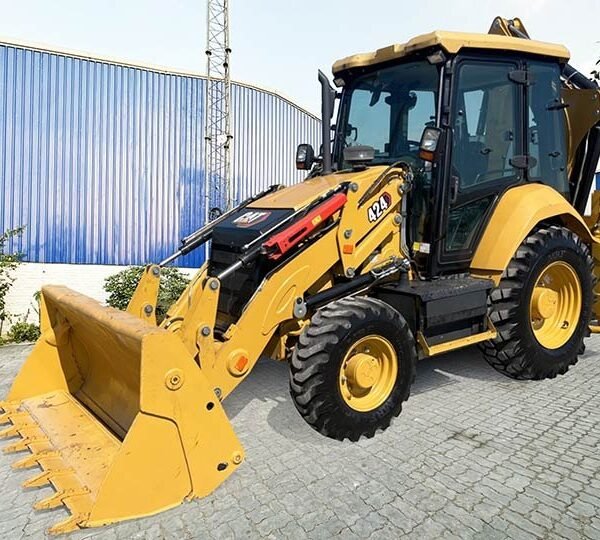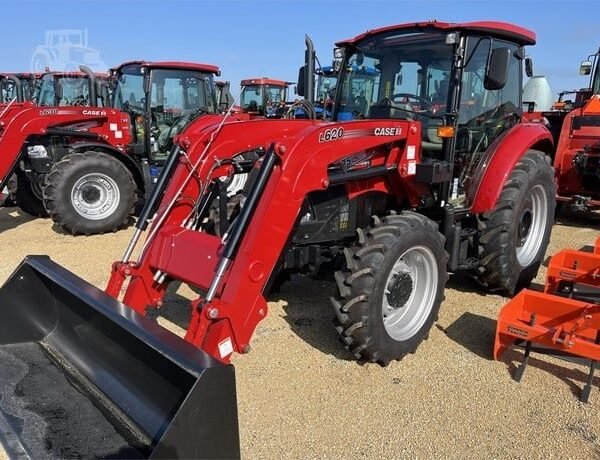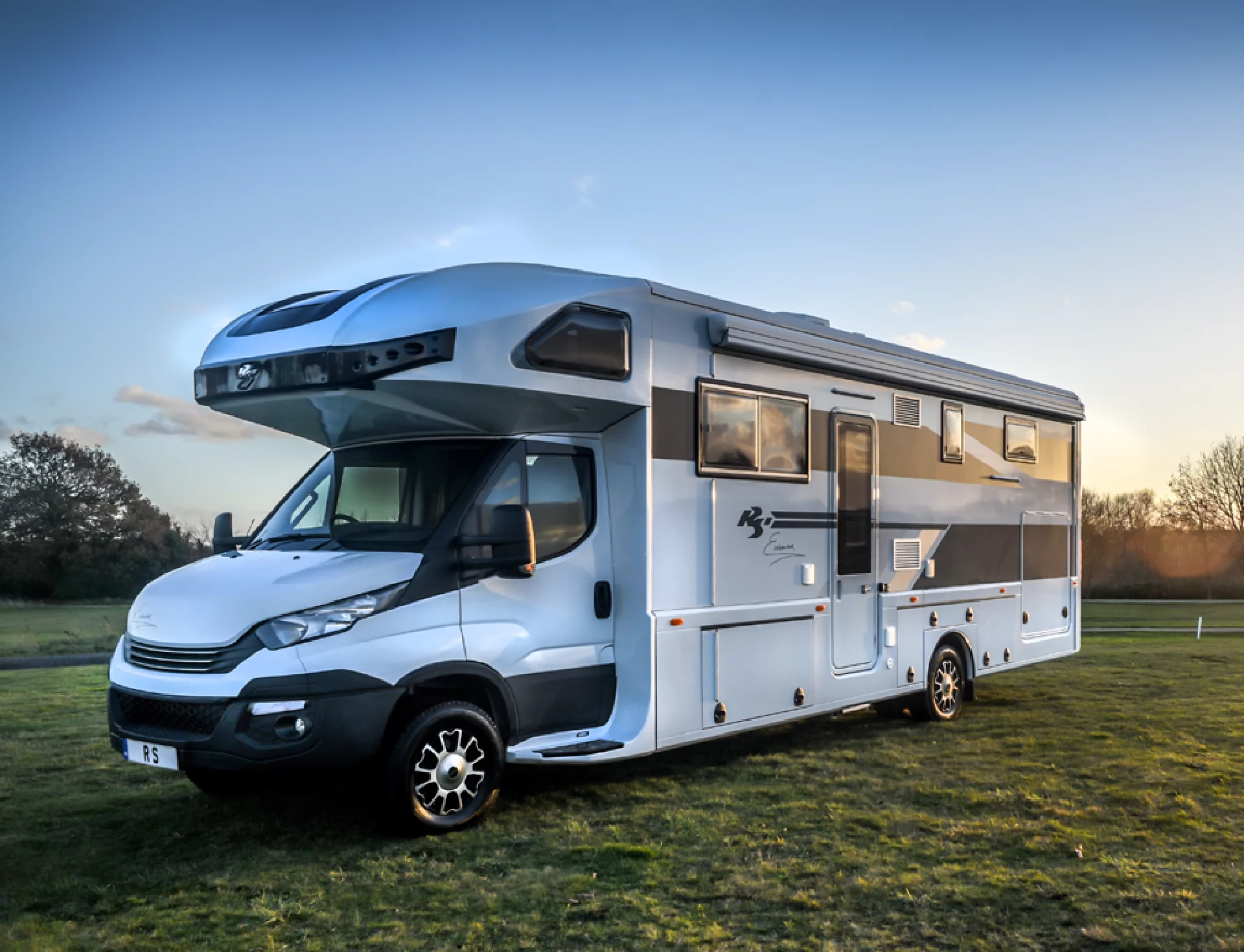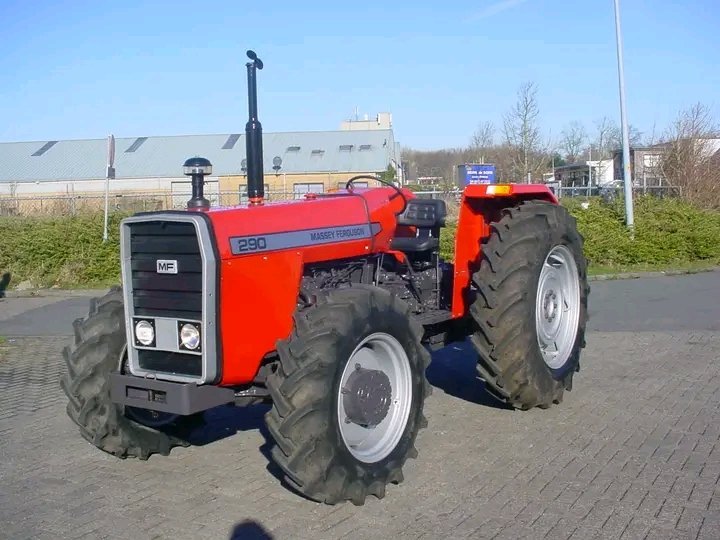RV Motorhome
The RV Motorhome is a versatile, self-contained vehicle designed for recreational travel and living. It offers all the comforts of home on the road, combining transportation with living space, making it ideal for vacations, long trips, or even full-time living. RV motorhomes come in various classes and sizes, equipped with modern amenities that make travel both enjoyable and convenient.
Key Features:
- Engine Performance & Driving:
- Available in Class A, B, and C models, with engines typically ranging from 200 to 450 HP, depending on size and model.
- Powered by gasoline or diesel engines with fuel efficiency ranging from 8 to 15 miles per gallon (MPG), depending on the vehicle’s weight, size, and terrain.
- Capable of traveling long distances, with fuel tank capacities ranging from 80 to 150 gallons, allowing for extended trips without frequent refueling.
- Equipped with rear-wheel drive or all-wheel drive, providing stability and control on highways and rough terrain.
- Living Space & Amenities:
- Interior living space ranging from 150 to 400 square feet, offering room for multiple occupants and ample storage.
- Sleeping capacity for 2 to 8 people, with convertible sofas, bunk beds, and dedicated sleeping quarters.
- Kitchenettes equipped with 2- or 3-burner stoves, refrigerators (5 to 12 cubic feet), microwaves, and ample counter space.
- Bathrooms with toilets, showers, and even full-sized vanities in luxury models, ensuring comfort during long stays.
- Air conditioning and heating systems for climate control, providing comfort in all seasons.
- Integrated water tanks with 30 to 100-gallon capacity, offering enough water for several days of usage, including showers and dishwashing.
- Technology & Connectivity:
- Equipped with solar panels (optional on some models) for eco-friendly energy, capable of generating 200-600 watts, reducing reliance on external power sources.
- Satellite TV, Wi-Fi routers, and mobile app connectivity for controlling lights, heating, and monitoring tank levels, providing home-like entertainment and convenience on the road.
- Smart control systems with touch panels for easy operation of onboard systems, including lights, power, and climate settings.
- Storage & Capacity:
- Cargo space varies from 100 to 300 cubic feet, with undercarriage compartments and internal cabinets providing storage for luggage, recreational gear, and supplies.
- Towing capacity ranges from 5,000 to 10,000 pounds, allowing for additional cargo trailers, cars, or boats.
- Freshwater, gray water, and black water tanks with a combined capacity of 60 to 150 gallons, depending on the model, provide autonomy for off-grid stays of several days.
- Fuel Efficiency & Environmental Impact:
- Most modern RVs are designed to reduce emissions, meeting EPA standards for lower carbon output.
- Diesel engine models offer 10-15% better fuel efficiency than gasoline engines and can run more miles per tank.
- Solar-powered systems can reduce reliance on generators and grid power by up to 30%, lowering overall energy consumption.
- Safety & Driver Assistance:
- Equipped with advanced safety features like lane departure warnings, rear-view cameras, blind-spot monitoring, and collision detection systems for safer driving.
- Anti-lock braking systems (ABS) and stability control ensure greater safety, especially for large Class A motorhomes on rough or slippery roads.
- Fire safety systems, including smoke detectors, carbon monoxide detectors, and fire extinguishers, are standard in most motorhomes for added protection.
- Cost & Affordability:
- Prices for RV motorhomes range from $50,000 to $500,000, depending on the size, class, and level of luxury.
- Operating costs, including fuel, maintenance, and campsite fees, are generally lower than hotel stays over long trips, with annual maintenance costs averaging $1,000 to $2,500.
- Resale value for RV motorhomes remains strong, with a depreciation rate of around 10-15% per year, making it a viable long-term investment for frequent travelers.
- Durability & Longevity:
- Built with durable, lightweight materials such as aluminum or fiberglass exteriors and reinforced frames, designed to last for 15-20 years with proper maintenance.
- Modern motorhomes are designed to withstand extreme weather conditions, with insulated walls, double-pane windows, and weatherproof seals.
- Regular maintenance schedules—especially for engines, water systems, and tires—can extend the lifespan of a motorhome by up to 25%, ensuring reliable long-term use.
The RV Motorhome offers the perfect blend of comfort, mobility, and convenience, making it an ideal option for those who love adventure and travel. With advanced technology, spacious interiors, and a wide range of features, it transforms the road trip experience, allowing travelers to enjoy the freedom of the open road without sacrificing the amenities of home.











